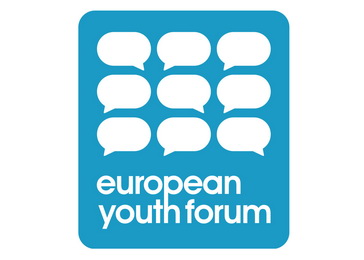 The European Youth Forum welcomes the European Commission’s New Skills Agenda for Europe and calls on member states to invest in young people’s skills in order to help tackle youth unemployment and social exclusion and ensure that no one, including young migrants, is left behind.
The European Youth Forum welcomes the European Commission’s New Skills Agenda for Europe and calls on member states to invest in young people’s skills in order to help tackle youth unemployment and social exclusion and ensure that no one, including young migrants, is left behind.
In a fast-paced, changing society, young people today require a wide range of transversal skills that allow them to think critically, take informed decisions and actively participate in society as whole. The Skills Agenda, with its focus on employment, risks forgetting that it is not just about skills for the labour market but about skills and competences for life.
Whilst “upskilling” and ensuring that all young people have basic skills – including writing, reading, numeracy and digital skills – is vital, it is disappointing to note the lack of focus in the new Agenda on the key role that non-formal education plays in preparing young people for life. Non-formal education gives young people vital skills, both for the workforce and for taking their place in and contributing to wider society. Five out of six skills that employers look for are gained through non-formal education in youth organisations and these competences must be validated and recognised by the system.
Furthermore, with almost one in three (30%) young graduates feeling over qualified for their job, there is a clear need to address skills matching. But this will not be a “silver bullet”; the creation of quality jobs for young people remains essential to address this, as well as the still high levels of youth unemployment in Europe.
On the Skills Guarantee put forward in the package of measures, the Youth Forum urges the European Commission and member states to learn lessons from the Youth Guarantee. With no EU investment behind it there is no guarantee that the initiative will make a real difference. The Skills Guarantee will only work if there is clear investment in public employment services and in developing partnerships between the private sector, education providers, public sector and civil society. Member states need to ensure that a tailored approach is made available to each individual. And one-stop shops should be established to help give access to and ensure good quality services for everyone. Finally, the involvement of social partners and civil society, including youth organisations, is vital to truly making a difference to those young people that are harder to reach and have slipped through the safety net.
Tinkara Oblak, Board Member of the European Youth Forum, said:
“This Skills Agenda needs clear commitment and investment from EU countries to make sure it really makes a difference to young people – far too many of whom are still a long way form the labour market, stuck in poverty and social exclusion.”
“Ensuring that young people have the necessary skills should not just be about churning out young workers! The gaining of skills must be accessible, affordable to all people based on a life-long learning approach and an agenda which recognises the vital role that youth organisations and non-formal education play in instilling in young people both strong values and a sense of community, but also the soft skills which are vital in all fields of work.”
Source: www.youthforum.org
 Government of the Republic of Serbia
Government of the Republic of Serbia















 pdf [271 KB]
pdf [271 KB]
Leave a Comment